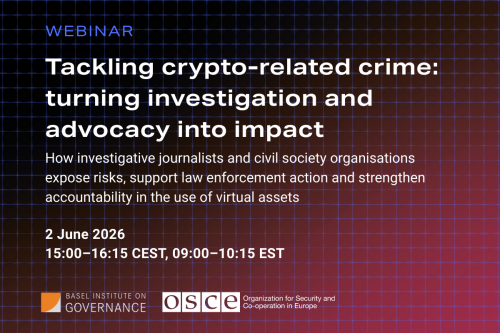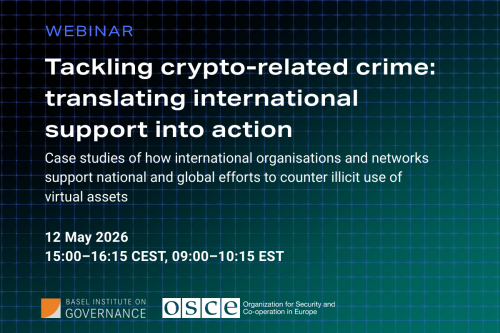FCPA Blog: Why asset recovery is about more than the money
This blog was originally published on the FCPA Blog, which was discontinued in February 2024.
Martin Kenney’s recent post on the FCPA Blog argues that private asset recovery lawyers are the key to improving recovery rates in complex transnational corruption and money laundering cases. Switzerland’s final decision to return $8.5 million to Peru in a long-running corruption case is “symbolic” not “practical,” he says and shows the “incompetence of the systems” that currently govern international asset recovery. In fact, there could be nothing more practical and positive – if you look beyond the money returned in a single case.
Measuring success
A cost-benefit analysis on a single case is no way to measure success in asset recovery. On that thinking, no government would invest in training doctors or nurses. For a single operation, you could fly in a team of top private surgeons from Harvard for half the cost. And then they would fly out.
Similarly, outsourcing individual cases to private law firms is, at best, only a temporary solution. It does nothing to build a country’s capacity to detect, investigate and prosecute corruption or other crimes.
And success breeds success. Initial “symbolic” cases under Peru’s non-conviction-based confiscation law — passed only in 2018 — which is currently being rolled out across the country with our team’s support, are having a ripple effect. The country has already recovered $64 million using that law, with many more cases in the pipeline.
In Kenya, a mentor from our International Centre for Asset Recovery worked for eight years with the country’s main anti-corruption agency. It is now a trailblazer in Africa, recovering hundreds of millions in the last three years alone and partnering with OECD member states in multi-jurisdictional investigations against foreign bribery. The first cases were slow, and then the system sped up, multiplying recovery sums every year.
Asset recovery capacity is about more than money
Building the capacity to recover assets internationally has benefits way beyond the money returned.
Every case, even those that get stuck or are ultimately unsuccessful, builds a piece of capacity along the asset recovery value chain. From the moment of detection through preliminary and full investigation, testing the realm of international cooperation, evaluating legal strategy, battling appeals and pressure from defence lawyers – every bit of this process builds the justice system as a stronger one.
The outcomes? The rule of law and human rights are upheld, and public institutions are more accountable. This ultimately leads to political stability and democratic governance. Benefits for all, not just the private asset recovery firms.
Building systems for cooperation
International cooperation between governments can work perfectly fine. Instead of belittling it or trying to bypass it – even if we could, which private firms cannot – we should support (and continue to improve) it.
Mutual legal assistance generally can be improved with relatively minor adjustments, such as electronic transmission systems and wider mutual recognition of novel asset recovery mechanisms like non-conviction-based forfeiture and illicit enrichment.
But those with experience in this space know that on top of that, ultimately, it’s the cases that build the system. One successful case of cooperation builds the model and the trust, and can then be replicated for the next case(s). The $8.5 million return to Peru follows the return of around $26 million in 2020 in three related cases, and Peru has not stopped investigating since. Watch this space. Such cases set not just legal precedents, but political ones.
Our last plea to readers of the FCPA Blog is not to mix, as Martin’s post does, assets frozen under sanctions regimes with assets frozen as suspected proceeds of corruption or other crime. Precisely one of the difficulties of confiscating assets frozen under sanctions is that they are not demonstrably the proceeds of crime.



